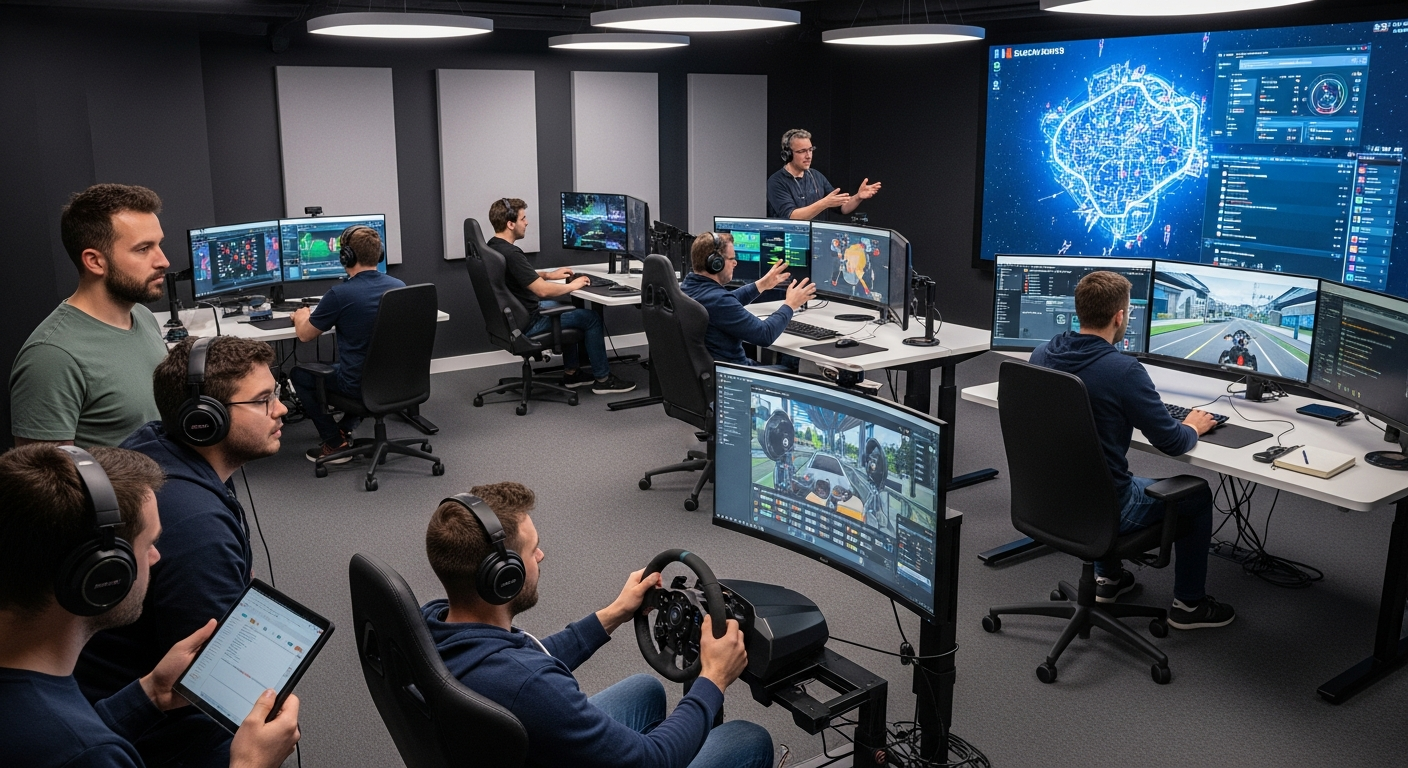The Hidden Talent Pool: Career Opportunities for Neurodivergent Individuals
In a world where diversity and inclusion are increasingly recognized as drivers of innovation and success, one group often remains overlooked in the job market: neurodivergent individuals. This article explores the untapped potential of neurodivergent talent, the unique strengths they bring to the workplace, and the evolving landscape of career opportunities tailored to their abilities.

Understanding Neurodiversity in the Workplace
Neurodiversity encompasses a range of neurological differences that affect how individuals think, learn, and process information. These differences can manifest as both challenges and unique strengths in the workplace. For example, individuals with autism often exhibit exceptional attention to detail, pattern recognition, and logical thinking skills. Those with ADHD may excel in creative problem-solving and multitasking under pressure.
Historically, the job market has been structured around neurotypical norms, often unintentionally excluding neurodivergent individuals. However, as awareness grows, companies are beginning to recognize the competitive advantage of embracing neurodiversity. This shift is not just about inclusivity; it’s about tapping into a rich pool of talent that can drive innovation and productivity.
The Business Case for Neurodiversity
Forward-thinking companies are realizing that neurodiversity can be a significant asset. Studies have shown that neurodivergent teams can be up to 30% more productive than neurotypical ones when properly supported. This increased productivity stems from diverse problem-solving approaches, heightened creativity, and unique perspectives that neurodivergent individuals bring to the table.
Moreover, neurodivergent employees often possess specialized skills that are in high demand in today’s job market. For instance, individuals on the autism spectrum may excel in roles requiring intense focus, data analysis, and technical proficiency – skills that are crucial in fields like software development, quality assurance, and cybersecurity.
Emerging Career Paths for Neurodivergent Individuals
As the job market evolves, new career opportunities are emerging that leverage the strengths of neurodivergent individuals. Fields such as technology, data science, and creative industries are at the forefront of this change. For example:
-
Software Testing and Quality Assurance: The meticulous attention to detail often associated with autism can be a significant asset in identifying software bugs and ensuring product quality.
-
Data Analysis and Visualization: The pattern recognition skills common in many neurodivergent individuals make them excellent candidates for roles in data analysis and interpretation.
-
Cybersecurity: The ability to hyperfocus and think outside the box can be invaluable in identifying and mitigating security threats.
-
Creative Design and Animation: Many individuals with ADHD or dyslexia possess strong visual thinking skills, making them well-suited for careers in graphic design, animation, and user experience design.
-
Specialized Consulting: Some companies are hiring neurodivergent individuals as consultants to provide unique perspectives on product development, user experience, and problem-solving.
Adapting the Workplace for Neurodiversity
To fully harness the potential of neurodivergent talent, workplaces need to adapt. This adaptation goes beyond physical accommodations to include changes in communication styles, management practices, and overall workplace culture. Some effective strategies include:
-
Flexible work environments that allow for sensory adjustments and individual work styles.
-
Clear, direct communication and explicit expectations to minimize misunderstandings.
-
Mentorship programs that pair neurodivergent employees with supportive colleagues.
-
Training for managers and coworkers to increase understanding and acceptance of neurodiversity.
-
Focus on strengths-based job design, aligning tasks with individual abilities and interests.
Education and Skill Development for Neurodivergent Job Seekers
As career opportunities expand, so do the educational pathways for neurodivergent individuals. Specialized programs are emerging that cater to different learning styles and needs:
-
Coding bootcamps designed for individuals on the autism spectrum, focusing on their strengths in logical thinking and attention to detail.
-
Visual-based learning programs for individuals with dyslexia, leveraging their strong visual-spatial skills.
-
Project-based learning initiatives that allow ADHD individuals to engage in hands-on, dynamic learning experiences.
-
Vocational training programs that combine skill development with workplace readiness, addressing both technical and soft skills.
These educational initiatives not only provide valuable skills but also help build confidence and self-advocacy – crucial elements for success in the job market.
The Role of Technology in Supporting Neurodivergent Careers
Advancements in technology are playing a significant role in creating more inclusive work environments. Assistive technologies, such as text-to-speech software, noise-canceling headphones, and organizational apps, can help neurodivergent individuals navigate workplace challenges more effectively.
Additionally, virtual and augmented reality technologies are being explored as tools for job training and skill development. These immersive environments can provide safe spaces for practicing social interactions, job interviews, and workplace scenarios, helping neurodivergent individuals build confidence and competence.
Looking Ahead: The Future of Neurodiversity in the Workplace
As we move forward, the integration of neurodiversity in the workplace is likely to become more commonplace. This shift will require ongoing efforts in education, workplace adaptation, and societal awareness. The benefits, however, are clear: a more diverse, innovative, and inclusive job market that taps into the full spectrum of human potential.
For neurodivergent individuals, the expanding recognition of their unique abilities opens up new horizons of career possibilities. For employers, embracing neurodiversity offers a competitive edge in an increasingly complex and dynamic business landscape. As we continue to break down barriers and challenge traditional notions of workplace success, we move closer to a world where every individual can find their place and thrive in their career, regardless of neurological differences.






